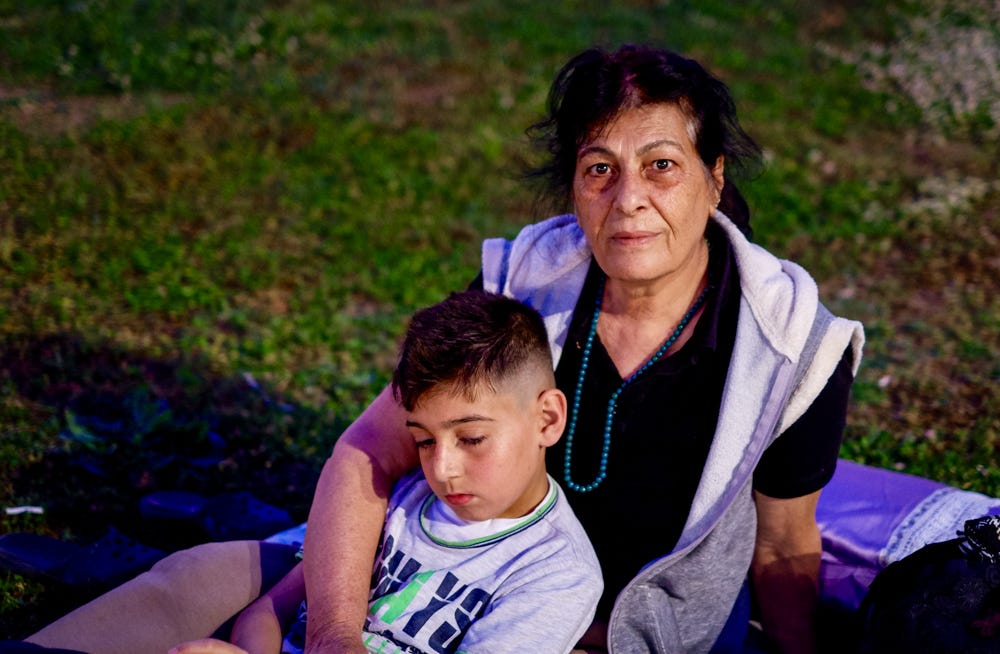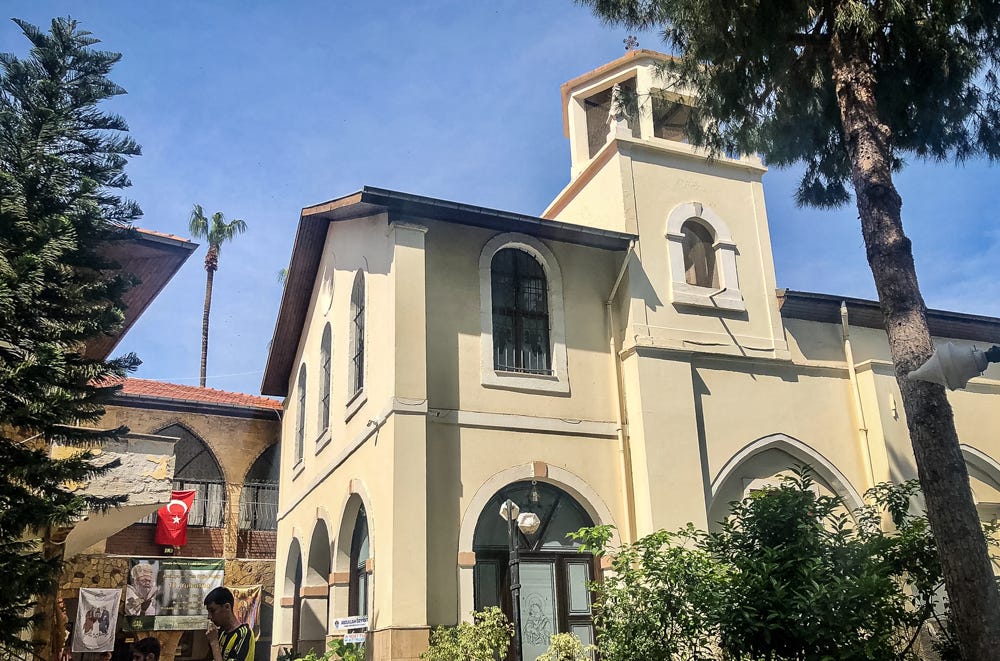On Monday, April 17, Mersin was balmy, bright and bustling, its sidewalks overflowing with pedestrians flanked by fruit sellers and clothes vendors, all beneath trees blooming with purple flowers marking the official arrival of spring.
The city of about one million has long been known for hosting Turkey’s largest port and pleasant coastline parks on the Mediterranean, but more recently Mersin has assumed a new role in hosting the largest number of people displaced by the Feb. 6 earthquakes.
According to surveys conducted by a group of local NGOs in late February, about 400,000 earthquake victims had settled in the southern Mediterranean city, just under a quarter of Turkey’s total displaced population following the disaster. For Mersin, the figure amounted to a 40 percent population increase over the span of several weeks.
The unprecedented influx strained public hospitals and services, rendering many institutions unable to serve both locals and newcomers alike, according to local news reports. There was also a surge in rental prices, exacerbating a period in which Turkey's major cities were already reeling from soaring increases and housing shortages.
Yet despite the new pressures, city officials aided by volunteer groups and NGOs have continued delivering humanitarian relief, providing housing and food for displaced residents as they plan their next steps.
“After the earthquake, we created shelters for the earthquake victims who left their cities,” a Mersin Metropolitan Municipality official who declined to be named told Turkey recap.
The official said about 10,000 citizens have so far used temporary accommodation areas set up by the municipality and roughly 3,000 earthquake victims continue to stay in city shelters.
“While some of the earthquake victims leave after making use of the shelters, others continue to stay in the shelters from the first day and all their needs are met by us,” the official said. “We distribute 35,000 daily breakfasts and meals at 43 locations in Mersin.”
In addition, the municipality is also providing psycho-social support and therapy services for earthquake victims.
Among Mersin’s displaced population is Father Dimitri Doğum, the priest of Antakya's centuries-old Greek Orthodox Church, located in the heart of the city’s devastated historic city center.
Doğum's church was completely destroyed and he lost his sister-in-law and her son in the earthquakes. He remained in the Hatay area for two days before relocating to Mersin, where he currently stays in a friend’s apartment.
“Our house didn't collapse but the interior walls broke apart,” Doğum said. “There is no way for us to stay there. I've been going there every now and then to collect our furniture. Unfortunately the city is unprotected. It is crying.”
A day earlier, on April 16, Doğum oversaw an Easter service among the ruins of his church in Antakya with Patriarch John X, the spiritual leader of the Greek Orthodox Patriarchate of Antioch and All of the East.
Now, much of Antakya’s Orthodox community has relocated to Mersin, home to over 1,000 Greek Orthodox residents of its own. Doğum said his counterparts in Mersin opened their doors and church to the displaced community.
“Since it is the closest and safest place, 80 percent of our community in Antakya chose to come here,” Doğum said.
Doğum added he didn’t plan to stay in Mersin for long, hoping to relocate with his family to his undamaged summer house in Hatay's coastal district of Arsuz. But his dark green eyes are heavy with grief following the tragedy his city and community have experienced.
“Life for us in Antakya is over for now,” Doğum said. “We will wait for our Antakya to once again get back on its feet but it will take some time.”

Near Mersin’s Orthodox Church, there’s a small park that used to be a stadium where at least 20-30 tents are housing earthquake victims, many of whom are Syrian. Before the earthquake, Mersin was home to 240,000 Syrian refugees, according to official figures.
Sitting in the park, Mersin resident Safiye Zeyrek told Turkey recap she had been sleeping there for several weeks out of concern for the safety of her home, which remained undamaged.
She was worried because when her building was completed in the 1990s, the contractors cut some of the columns on the ground floor to make room for retail stores below, an illegal practice that is nevertheless common and has been blamed for worsening the earthquakes’ destruction.
As she spoke, Zeyrek held her young grandson, who remained stoic even though he was just stung by a bee.
“We are scared, we can't stay there,” Zeyrek said about her apartment.
By their side, stands Mira Ateş, a young trans woman who escaped death in Malatya. She said she was trapped under rubble from her collapsed building for two days before rescue crews pulled her out.
One of her roommates didn't survive. At the park in Mersin, she looked healthy and remained upbeat, but the fingers on her right hand were still purple, scratched and swollen.
Ateş was hospitalized in Malatya for several weeks before she made it to Mersin, where she is staying in a tiny, makeshift tent of blankets in the park. Ateş complained about discrimination due to her identity, saying she was not able to get distributed meals and that her use of public women's toilet has been met with backlash from other earthquake victims staying in the park.
“I've had lots of problems and I'm having them here. People fight here and the police come to my tent and question me, 'What does this have to with me', I say,” Ateş told Turkey recap.
Both Zeyrek and Ateş said that due to the upcoming elections, police have come several times and told them to evacuate the park. They remained unsure of their next steps, which were limited by exorbitant rent fees in the city following the population influx.
Recent news reports suggest rents have at least doubled in some Mersin districts following the earthquakes, with real estate sector representatives reporting the cheapest rental unit prices went from 3,000 Turkish liras to 8,000 liras a month.
Turkey recap is an independent platform supported by readers via Patreon and Substack. Members get access to our Slack channel, timelines, calendar and more.
We also invite you to visit our merch store, but if you simply liked what you read, subscribe here or share it with a friend. Feedback and pitches: info@turkeyrecap.com.
Diego Cupolo, co-founder + editor @diegocupolo
Gonca Tokyol, freelance journalist @goncatokyol
Ingrid Woudwijk, freelance journalist @deingrid
Verda Uyar, freelance journalist @verdauyar
Gökalp Badak, editorial intern @gklpbdk






